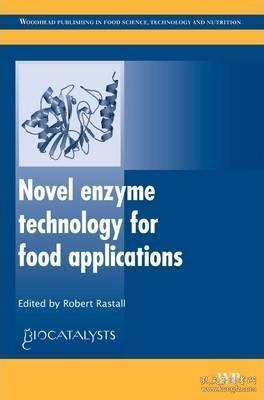摘要:本文介绍了酶制剂应用的关键考虑因素和定义,涵盖了酶制剂的制备、应用及其重要性。文章详细解析了酶制剂在不同领域的应用,包括工业、医疗、食品等领域。对酶制剂的制备过程进行了阐述,强调了版本74.36.77的特定细节和注意事项。文章旨在帮助读者更好地理解和应用酶制剂,为相关领域的研究和实践提供指导。
In the realm of biotechnology and biocatalytic reactions, enzymes play a pivotal role. Enzyme preparations are compounds that contain enzymes and are used in various industrial and scientific applications. Their use requires strict attention to safety measures and accurate understanding of their properties. This article aims to explain the key considerations and definitions related to the application of enzyme preparations.
Definition of Enzyme Preparations
Enzyme preparations are mixtures that contain enzymes, which are natural catalysts present in living organisms. These preparations are derived from various sources like plants, animals, or microorganisms and are used in various fields like food processing, pharmaceutical manufacturing, and industrial biotransformation processes. They catalyze specific reactions and help in the conversion of substrates into desired products.
Key Considerations for Enzyme Preparation Application
1、Source Verification: It is crucial to verify the source of enzymes used in preparations. The source should be reliable and free from contaminants that could affect the safety or efficacy of the preparation.
2、Proper Storage Conditions: Enzymes are highly sensitive to environmental conditions like temperature, pH, and moisture. Proper storage conditions are essential to maintain the integrity and activity of enzymes in preparations.
3、Specific Activity: The specific activity of enzymes in preparations is a crucial factor to consider. It determines the efficiency of enzymes in catalyzing reactions and should be optimized for specific applications.
4、pH and Temperature Control: The pH and temperature of the reaction mixture should be carefully controlled to ensure optimal enzyme activity. Extreme conditions can denature enzymes and reduce their efficiency.
5、Substrate Specificity: Enzymes are highly specific to their substrates and require precise identification of substrates for optimal performance. Understanding substrate specificity helps in selecting the right enzyme preparation for specific applications.
6、Inhibition and Activation: Some compounds can inhibit or activate enzyme activity. It is essential to identify such compounds and avoid their presence during enzyme preparation application to ensure accurate results.
7、Contamination Control: Contamination during enzyme preparation application can affect the quality of products and lead to unexpected outcomes. Strict measures should be taken to ensure contamination-free environments during preparation and application.
8、Safety Measures: The use of enzyme preparations should comply with safety regulations and guidelines. Proper training and education on handling enzyme preparations should be provided to personnel involved in their application.
9、Scalability: When scaling up enzyme preparation application from laboratory to industrial scale, special considerations should be given to ensure consistent quality and performance.
10、Regulatory Compliance: Enzyme preparations should comply with regulatory requirements related to their production, use, and disposal. It is essential to follow regulatory guidelines to ensure safety and efficacy.
In summary, the application of enzyme preparations requires strict attention to various considerations like source verification, proper storage conditions, specific activity, pH and temperature control, substrate specificity, inhibition and activation, contamination control, safety measures, scalability, and regulatory compliance. Understanding these considerations and definitions is crucial for effective enzyme preparation application in various fields like food processing, pharmaceutical manufacturing, and industrial biotransformation processes.



